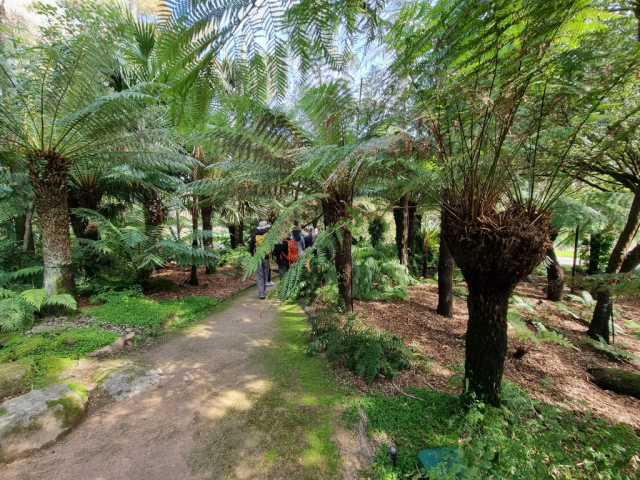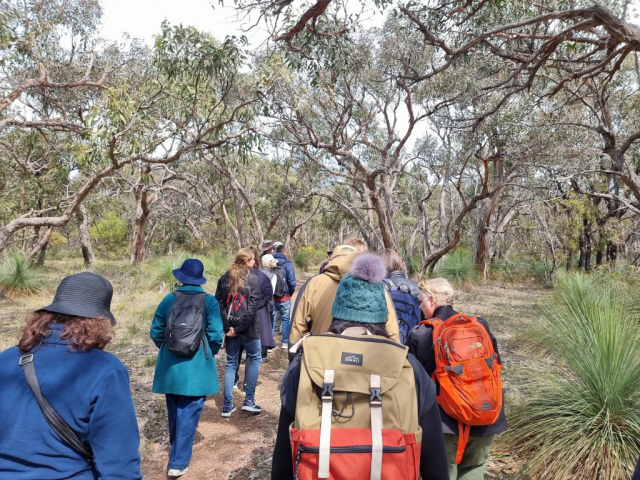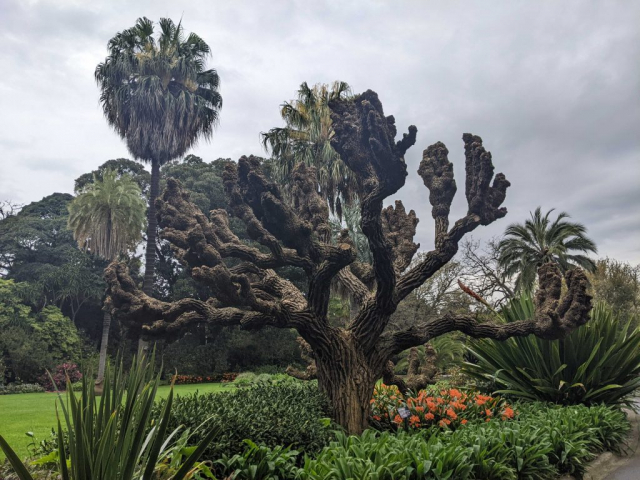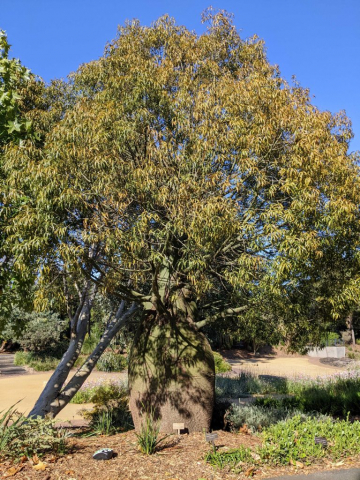January 2023
The Botanical Software blog has moved to hortis.com/blog. You can read all about “Hortis at the 7th Global Botanic Garden Congress” here.
Under the tagline “Influence & Action : Botanic Gardens as Agents of Change”, 500 delegates from 38 countries came together in Melbourne to explore how botanic gardens can play a greater role in shaping our future.
We would like to start by thanking and congratulating the hosts, Royal Botanic Gardens Victoria (RBGV), Botanic Garden Conservation International (BGCI) and Botanic Gardens Australia and New Zealand (BGANZ) for organising such a memorable, enjoyable and inspiring congress.
The gathering started off with pre-congress tours which offered us a great opportunity to learn more about the region, catch up with old friends and make new ones. The rest of the week included a great mix of keynote speakers, panel discussions and workshops which were crowned by a blaze of festivities at the congress dinner, including a fabulous performance of some very musically talented BGANZ botanists (Hats off to Tex Moon, John Arnott and the rest of the band). At the closing of the congress, a group of 8 distinguished delegates presented a summary of the week’s conclusions and emerging themes, which you will find below.
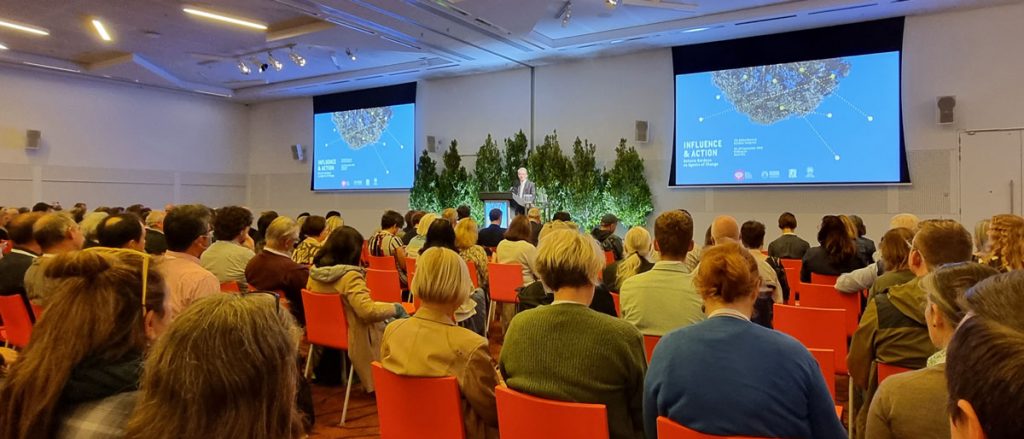
What did we learn?
It is always a pleasure and extremely valuable to our work to talk to existing users and other members of the community and we would like to thank everyone who came to our exhibit, and send our apologies to delegates we were unable to attend to at busy moments.
With Hortis having been selected as the records management system of choice for BGANZ gardens, the congress was also a great opportunity to meet many members of the BGANZ community.
Our three most important takeaways were:
- the increasing importance of data quality and collaboration.
- how COVID has emphasised the benefits of the cloud.
- that time is the most common constraint botanic gardens are struggling with.
We would also like to give a shout out to Ari Novy, President and CEO of San Diego Botanic Garden for his brilliant talk on using T-Shirts to influence change at the session titled “Catalysing Conservation Action: How Botanic Gardens Influence”. We hope our T-Shirts have a similar impact 😁
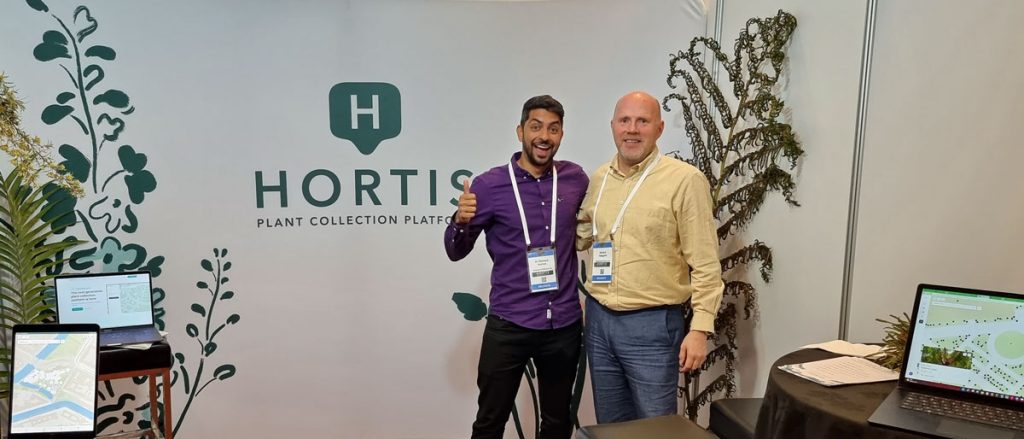
Can we succeed without reliable data?
Many of the congress sessions highlighted the importance of reliable data. Initiatives in our community start with analysing the problem, then tracking progress and finally analysing the outcome. Reliable data is key at all stages in this process. With Hortis, our most important role at this stage is to facilitate easy and cost effective data capture for the community. Over 80% of botanic gardens in the world have never shared their collection data with BGCI, although they would very much like to. With Hortis, our main focus in the short term is to help these gardens. With more reliable data, gardens will be able to use their plant collection more strategically, but can also participate in regional and global plant conservation efforts. Being a cloud product also opens up new exciting opportunities for collaboration and data sharing.
The importance of BGCI’s role in bringing global data together cannot be overstated and it is great to see all the exciting data tools that BGCI are working on and continue to improve. In addition to “Garden Search”, “Plant Search”, “Threat Search” and “Global Tree Search” we also got an update on the upcoming “Propagation module” and a sneak peak at the “Pedigree Management” tool. The latter can be used to manage targeted breeding programmes to improve genetic biodiversity of exceptional species, replicating some of the principles used with “studbooks” in the zoological community. This specific topic was covered in great detail in a separate session and is another example of how conservation work is only achievable with reliable data. It is also a wonderful example of the potential ex-situ collections can have.
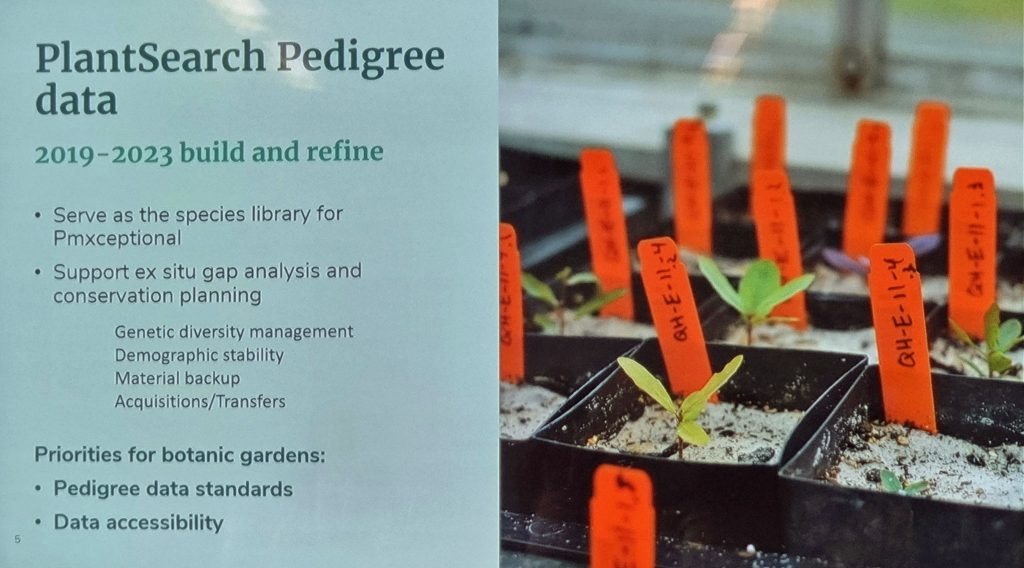
Is everything moving to the Cloud?
At the end of the day, “what we really want is just stuff that works” and how it works is of less interest. However, through COVID, many have felt the challenges that come with cumbersome IT systems that are difficult to access and utilise outside the office. In contrast, users of cloud products have experienced how much convenience and flexibility they offer. Post COVID, forecasts indicate that at least 25% of the workforce will work from home, one or more days a week.
We also learned that many are uncertain about what cloud computing means.
In the simplest terms, it refers to “software and services that run on the Internet, instead of locally on your computer”. Products might claim to be cloud based, but that can sometimes mean that part of the product package might still require local installation and maintenance. Hortis is a pure cloud product where every aspect of the platform runs on the internet and consequently no installation is required. In addition to this, we have designed Hortis to work smoothly on any device you might have, be that smartphone, tablet or desktop. The only thing you need is an internet connection and then you are good to go.
The trend is that many institutions are moving to the cloud as much as they can and, post COVID, this trend has accelerated considerably.
Time is of the essence
Many gardens struggle with a range of challenges, including financial constraints, staffing issues, etc., but having sufficient time seems to be a constraint that is shared by everyone.
If a tool is too cumbersome, it will remain unused. Through software design, we want to make sure that all users, regardless of their background, are able to pick up Hortis and get their work done as smoothly and efficiently as possible. A large proportion of users are occasional users and that means that a tool that requires extensive training is not a viable option.


The future is already here!
Visit the new and refreshed hortis.com, get pricing details, book appointments, request a trial, and more. Check it out yourself today!
8th Global Botanic Garden Congress
See you in Singapore in 2024
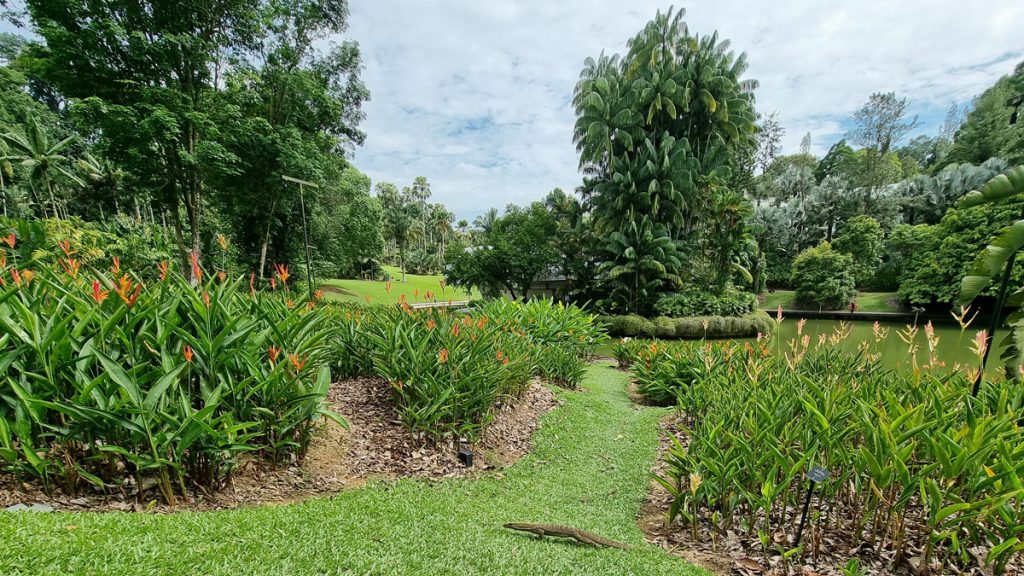
Final Conclusions and Emerging Themes
For the benefit of the congress, a group of 8 distinguished delegates made the effort of compiling conclusions and emerging themes. We have included their findings below which are grouped by the congress themes.
Many thanks to the group, which consisted of : Chair - Silvia Alvarez-Clare : Director of Global Tree Conservation at The Morton Arboretum, Steve Blackmore : chair BGCI, Nicole Cavender : Director of Botanic Gardens at The Huntington Library, Art Museum and Botanical Gardens, Jean Franczyk : President & CEO at Chicago Botanic Garden, Tara Moreau : Associate Director, Sustainability and Community Programs at UBC Botanical Garden, Suzanne Sharrock : Director of Global Programmes at BGCI, Judy West : Executive Director at Australian National Botanic Gardens, Damian Wrigley : National Coordinator at Australian Seed Bank Partnership
Adapting to Climate Change
- Climate change-related disasters are already impacting ecosystems, biodiversity, and our collections.
- Botanic Gardens should prepare Disaster Plans and ensure staff are trained in emergency procedures.
- Botanic gardens should play a strong motivating role in encouraging standards for the collection and storage of seed for restoration.
- Large volumes of restoration seed are needed for the future to combat the changing climate, impact of invasives and habitat destruction.
Global Conversations
- Major Achievements: Research, reflection, and consultation inform successful projects, which all yield blueprints, models, or case studies that can inform practice.
- Challenge: Tension between urgency for long-overdue change and the time required for an authentic response, especially as we seek to honour First Nations experience and knowledge.
- Opportunity: The willingness to change one’s perspective by a few degrees can lead to creative and positive change.
Greener and more livable cities
- Cities are significant reservoirs of plant diversity and with human intervention nature can be intensified to support biodiversity – Right Plant, Right Place.
- There is emerging data showing that botanical gardens provide motivating and restoring experiences that can change peoples lives.
- We should be partnering more with social scientists to increase this body of knowledge.
- Deploying skills in garden design and urban planning is critical to enhancing the impact of our plant collections and linking people with nature.
Plant & Biodiversity Conservation
- The extinction of a species represents the extinction of experience.
- We must engage with local communities for holistic biodiversity conservation.
- Increasing sophistication of plant conservation practices means we can be agents of change for biodiversity conservation and restoration.
- We must train and empower the next generation of practitioners and share our successes and failures.
- We must exchange information and living material among seed banks and botanic gardens and their nurseries.
- The nursery is the “engine room of everything”.
- People, plants, and knowledge are critical, as are science and horticulture.
Impactful Engagement & Education
Calls to Action
- Stay connected and inspired. We are exploring how we can support a BGCI Education and Engagement Network. Stay tuned!
- Showcase stories of hope and co-creation in response to a changing climate.
- Continue to accept and adapt to uncertainty & change.
- Explore different knowledge systems towards truth, justice and reconciliation.
Surviving and Thriving in a Post-COVID World
- The pandemic increased public appreciation of plants, contact with nature and -most importantly- botanic gardens as uplifting, safe and inspiring spaces.
- Despite the difficulty of meeting face to face, digital meetings and communication have proved effective and reduced our carbon footprint.
- The challenge is to build resilience against future crises.
- We must keep in touch after the Congress and share solutions from around the world.
In addition to the congress themes, the group also shared their findings in relation to global plant conservation efforts.
Global Strategy for Plant Conservation
- The Global Strategy for Plant Conservation is of fundamental importance to both individual gardens and the global botanical community. It is imperative that the GSPC continues into the future.
- The next round of GSPC targets are yet to be agreed by Parties to the Convention on Biological Diversity.
- Speak to your governments and GSPC Focal Points about the importance of the GSPC to botanic gardens and plant conservation globally.
- As Agents of Change we must act now to advocate as a global community for plant conservation under the Post 2020 biodiversity framework.
Tree Conservation
- The Global Tree Assessment is groundbreaking – generating baseline data for targeted, informed, and successful tree conservation.
- The Prioritise-Plan-Act-Monitor framework has worked across six continents.
- Assessments must be translated into action and there is an urgent need for scaling up.
- Global Conservation Consortia are a successful model for creating coordinated ex situ collections (metacollections) of high conservation value.
- JOIN A CONSORTIUM OR START A NEW ONE!

